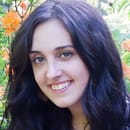“I’m not wearing a damn mask for an asymptomatic COLD!!!!” an angry, anonymous Twitter user wrote in reply to my Tweet advocating mask-wearing. They deleted it only minutes later when their mentions began to blow up with factual information about COVID-19.
I caught COVID-19 at the beginning of September, just one month after moving to Atlanta, after much effort to avoid it. At the time of my diagnosis, I only had a sore throat and some coughing. I took comfort in the knowledge that the coronavirus was supposed to produce mild symptoms in young people, or sometimes none at all. That’s what everyone was saying, wasn’t it? Isn’t that why teens and college kids were throwing house parties and going to the beach? Because even if they caught the “Rona,” they’d be fine? It’s just like a cold?
I almost believed that too, but I was proven wrong. I got through the worst of it in two weeks, but those two weeks were dreadful. I developed nearly every common symptom except for a fever, plus a bonus symptom: a pounding ache that radiated from my right ear into the center of my skull, like that pain you feel in your head when the air pressure changes during flight descent. Everything I ate and drank tasted exactly the same. I ordered Buffalo Wild Wings with four different sauces and the only difference I could detect between them was the amount of spice-induced tingling they made my tongue feel. My nose picked up nothing of my flower-scented body wash except for something reminiscent of burning rubber. I’m not a smoker, but the burning in my sternum could’ve fooled me. It was like an elephant took a two-week nap on my chest. A month after my diagnosis, I still feel like I can’t take full breaths of air. My lungs are giving me the finger for putting them through that.
Okay, enough drama. I’m completely fine now. I’m actually extremely lucky that COVID-19 was as mild as it was for me, even if I didn’t think so while I had it. But going through it made me extremely fearful for people who are more vulnerable to potential complications than me. I’m a healthy 19-year-old and coronavirus lowkey effed me up…what would it be like for immunocompromised people? For older folks? I wouldn’t dare put anyone at risk for contracting this virus now. I obviously knew it was dangerous before, but I don’t think the reality of that truly sunk in until I got it myself.
That’s why I can kind of understand why COVID-19 skeptics are so adamant about denying the existence of the pandemic. It’s hard to believe such a thing is happening. They don’t want to believe it. They pray to God or whoever that it’s not true. Because if it’s true, that means that people are suffering, that people are dying, that normal life is no more, that everything is unpredictable now. That’s all extremely upsetting and difficult to come to terms with, so it makes sense that people would rather believe that it’s a hoax. It’s basic denial psychology.
Unfortunately, I know firsthand that it’s not a hoax. This pandemic is still happening, it’s still serious, and we still need to protect ourselves and others until health experts tell us otherwise. Please social distance and wear a mask even if you don’t think you’re sick—I tested negative on the rapid test but positive on the PCR test a few days later. I could’ve infected others while I was walking around thinking I was in the clear when in reality I wasn’t! Thankfully I had nowhere to be so I stayed home most of the time, but still…
Even if COVID-19 won’t kill you, young and healthy people reading this, it will still probably suck big time, and more importantly, it could more severely affect people you care about. Even as I’m calmed by the knowledge that my antibodies will protect me for the next few months, I won’t let my guard down and let myself become a part of the problem.


